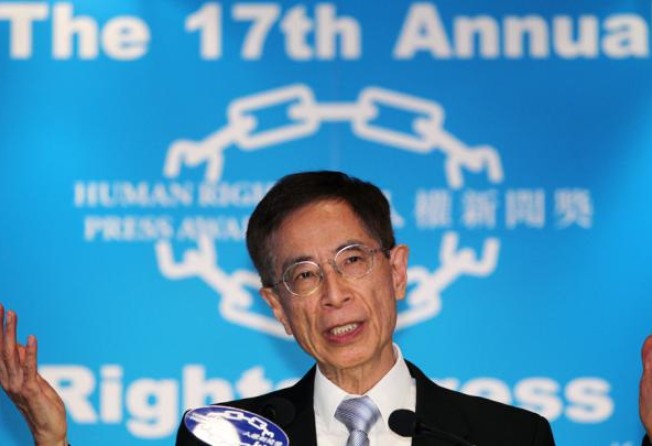Democratic candidates must have a place in 2017 contest
Frank Ching says whatever the decision on the nomination process, there must be no regression from freedoms allowed in previous polls

Senior Chinese legislator Qiao Xiaoyang dropped a bomb last month when he presented his views on how the 2017 chief executive election should be held.
Some of what he said was unacceptable and resulted in a strong public reaction. However, other points he made, while unpleasant to many, must be accepted as little more than common sense. These include the fact that the chief executive must be someone who can work with the central government and, hence, be acceptable to Beijing.
It is heartening to see that some individuals identified with the democratic movement are taking pragmatic stands. Former chief secretary Anson Chan Fang On-sang, for example, is reportedly forming a group that will consult the business sector and the pro-establishment camp to formulate a proposal acceptable to the central government.
Chan Kin-man, an Occupy Central organiser, has said that core members of the Hong Kong Alliance in Support of Patriotic Democratic Movements of China, which opposes one-party rule in China, should not run for chief executive to ease Beijing's concerns.
Even Martin Lee Chu-ming, who threatened in 2010 to leave the Democratic Party because it had conducted talks with the central government's liaison office, has offered an idea which won't vanish simply because he has "retracted" it.
But Lee, as well as Benny Tai Yiu-ting, originator of the Occupy Central idea, also insist on "international norms". However, it is extremely difficult to say what such norms are, since countries have different ways of holding elections. In fact, some Hong Kong democrats have such high standards they would consider the United States undemocratic.
They speak of each vote having the same value as every other vote, which sounds good in theory. But consider George W. Bush, who was elected US president by the Electoral College (shades of the Election Committee!) even though he won fewer votes than Al Gore in the popular vote.
Tai in fact suggested that the nominating committee should include all of Hong Kong's 3.5 million voters. That way, every nomination will in effect be by a referendum of all the people.
Hopefully, such ideological positions are being adopted solely for negotiating purposes. Much more pragmatic positions must be adopted in discussions of how the nominating committee should be formed and exactly how it should go about making nominations.
The main thing is that there must be no retrogression in the universal suffrage election in 2017. Democrats were able to be nominated in 2007 and 2012. The system in 2017 must be such that democrats can be nominated so voters have a genuine choice and the resultant chief executive will be able to govern effectively.
In 2010, when the Democratic Party and the liaison office agreed on the 2012 electoral reform package, the Democrats asked Beijing for a 10-year plan for democratisation, leading up to universal suffrage elections for the entire legislature in 2020.
The liaison office said that the central government would study the idea but that it was unrealistic to expect Beijing to resolve all issues in a few weeks.
It is now three years. It is high time for Beijing to present its plan for democratisation rather than hide behind meaningless slogans of loving China and loving Hong Kong.
Frank Ching is a Hong Kong-based writer and commentator. [email protected]. Follow him on Twitter: @FrankChing1